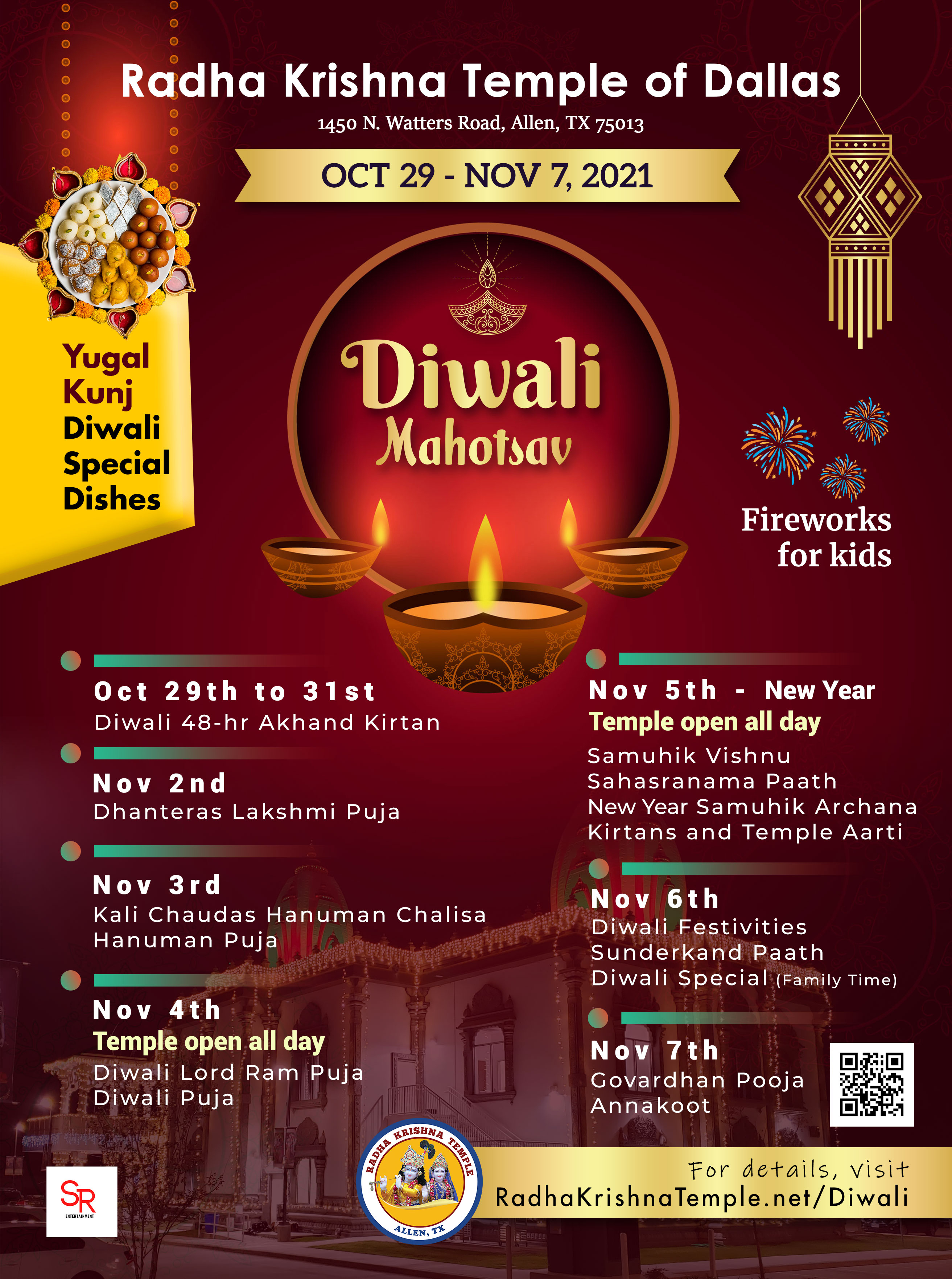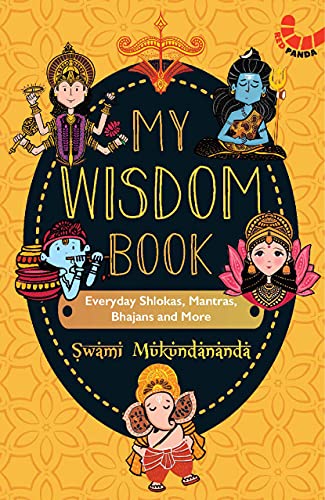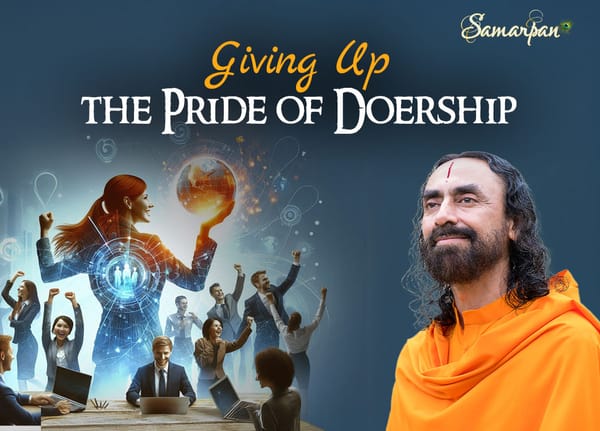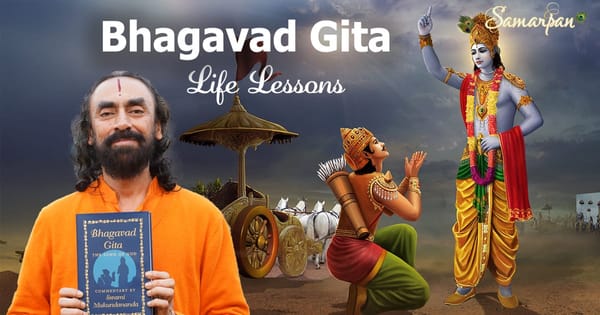
From the Editor’s Desk
Vedic knowledge (i.e., tatvagyan) teaches us that we all keep searching for contentment - the key to inner happiness. Many of us rely on external objects and events for our inner happiness, but in doing so, we relinquish the internal control we have over our own happiness. Long-term happiness does not depend on accumulation of numerous possessions but on the extent to which we feel satisfied with life. Let us learn from Swami Mukundananda about the meaning of contentment and how to reach that internal state for long-term happiness.

Vedic Wisdom & Application
Challenge of the Month
Searching for Contentment
Reflection Questions - Searching For Contentment
- What is the meaning of contentment?
- Why do we fail to experience true contentment in life?
- How can we find contentment in life?
Contentment in life is difficult to define and even more difficult to exemplify. This is because it is an internal state that cannot be quantified, only experienced or realized.
Contentment is a state of experiencing inner satisfaction with life. Contented people are those who have accepted their life in the way it unfolds. They find beauty and joy in mundane things as well as in communion with nature. Their inner joy is not dependent upon fulfillment of material desires, but on finding a sense of peace and calm from knowing their place in the universe and accepting it as a way of life. Contented people derive inner satisfaction from life experiences, whether it is from helping others in need or being comfortable with their own sense of self. They appreciate and feel grateful for what they have in life, and live to their maximum potential as parents, family members, friends or colleagues.
What is the Meaning of Contentment in Life?
The spiritual meaning of contentment has to do with feeling internally satisfied with whatever circumstance is presented to us through our karmas (Bhagavad Gita 10.4-5). Swamiji explains that contentment does not come from increasing our possessions, but by decreasing our wants. Those who do not perceive material objects as the source of pleasure, feel contented with whatever is bestowed upon them as divine grace (Bhagavad Gita 12.13-14). This concept is related to accepting God’s will and not desiring anything against His will – two aspects of intellectual surrender to God.
There is a spiritual principle about what we should and should not feel contented about. We must feel contented with our spouse, wealth, and the food we get to eat because these are material in nature. However, it would be a big mistake to feel contented about being a devotee of God/Guru, the extent of our devotion, the amount of seva done, contributions made to charity, and our scriptural knowledge. These proclivities are bestowed upon us through causeless divine grace, and contentment may lead to arrogance or complacency. Rabindranath Tagore was such an accomplished writer, yet he acknowledged God for his achievements and took the blame for the blemishes in life.
Contentment can lead to long-term happiness, but pursuit of short-term happiness may not lead to contentment. Those who possess the wealth of contentment, possess one of the biggest treasures of life (Bhagavad Gita 2.71). Lord Krishna told Arjun that for those who feel contented from within, the gain comes on its own because the outcome is in accordance with His will. Contentment in life allows us to perceive success and failure, fame and infamy, praise and criticism as non-different from each other.
यदृच्छालाभसन्तुष्टो द्वन्द्वातीतो विमत्सर: |
सम: सिद्धावसिद्धौ च कृत्वापि न निबध्यते || 22||
yadṛichchhā-lābha-santuṣhṭo dvandvātīto vimatsaraḥ
samaḥ siddhāvasiddhau cha kṛitvāpi na nibadhyate
Content with whatever gain comes of its own accord, and free from envy, they are beyond the dualities of life. Being equipoised in success and failure, they are not bound by their actions, even while performing all kinds of activities (Bhagavad Gita 4.22).
In general, whether from a worldly or spiritual perspective, contentment in life also comes from not attaching one’s mind to the results of our actions. For example, doctors and nurses treat scores of patients each day, may do their best in delivering care, but at the end of the day, they “leave” their patients at the hospital instead of carrying them home in their minds. While they too may mourn the loss of patients, it does not consume their lives due to relative detachment. Contentment in life is about finding a reason to live and looking forward to life in spite of challenges.
Why do we Fail to Experience True Contentment in Life?
We are inundated by advertisements and fantasies created by industries that try to sell dreams of the perfect life or the ultimate recipe for happiness. These generally include luxurious lifestyles, travel to magnificent locations, or pursuing unrealistic goals. Those who equate happiness with contentment, feel a sense of loss when they are unable to achieve what advertisements have defined as a successful life.
The spiritual perspective is a bit different. In the Science of Mind Management book, Swamiji explained that when the mind becomes attached to material things, it creates the desire to access these pleasures repeatedly. When our desires are fulfilled, the mind craves for more, leading to greed. Greed for material advancement is an endless chase and a colossal waste of time because when unfulfilled, it arouses anger. In either situation, the mind continues to contemplate on the objects of desire, further strengthening the degree of material attachment. Neither greed nor anger result in contentment because our hankering for material pleasures remains unsatisfied.
Our worldly attachment and the sense of proprietorship keeps us entangled to our actions and their outcomes. Even in seva or service, we become attached to the results and experience pleasure or distress because our happiness is tied to victories and defeats in our internal world.
Jagadguru Kripalu ji Maharaj says that we keep searching for happiness in the wrong direction. We have turned our consciousness away from God in ignorance (i.e., become vimukh). Hence, God’s material energy or Maya troubles the soul and we do not experience true happiness. If our intellect is convinced of our identity as the soul, it will search for the source of true bliss by turning toward God (i.e., become sanmukh) and find the bliss which will satiate us.
How can We Find Contentment in Life?
Instead of giving up all desires, it is important to focus on noble desires that uplift the soul, but also detach from worldly desires that downgrade the soul. Here are some ways to find contentment in life. While not exhaustive by any means, these are intended to illustrate examples of sources for contentment.
- Seek strength of purpose from reading biographies of inspirational people and seek opportunities to surround yourself with positive, uplifting and contented people.
- Choose to be happy in whatever you do – pursue a career, raise a family, connect with friends, etc. Remember that pain is inevitable, but misery is an option.
- Feel contented with your life – the food you get to eat, the family members you have, your living situation, etc. with the attitude that they are good for my internal growth (except in abusive situations). Give up chasing unrealistic dreams.
- If you are able to make ends meet, keep your material desires in check. If you are able to live a life of moderate to high luxury, feel good about yourself by helping those who are less fortunate.
- Striving for perfection is great but do not be so obsessed with it that you make yours and others' life miserable. Shoot for high goals but be happy with your effort even if the results are contrary to your expectation.
- We all have two radio stations in our mind – channel P that broadcasts positive messages and channel N that broadcasts negative messages. If we repeatedly listen to channel P, then our mind will mostly generate uplifting thoughts.
- Find time to also contemplate on the purpose of life and the extent of attachment vs. detachment to spiritual vs. material goals.
- Experience pleasure in engaging in seva or service without the need for recognition.
- In whatever activity you do, put in the best effort but be satisfied with the outcome because it is not in our hands.
- Make time (at least 1 hour daily) for any spiritual activity that uplifts the soul – reading or listening to scriptural knowledge, chanting, meditation, and contemplation. Make self-improvement a goal of your life.
- When challenges are presented, accept those too as experiences that shape and test the extent to which we are truly contented in life.

Tools for Your Personal Growth
How contented are you with your life? To what extent are your wants and desires in sync relative to your needs? Assess your levels of contentment in a downloadable tracking sheet available for you to use.

How contented are you with life? Assess your levels of contentment in a downloadable tracking sheet available for you to use.

Love to Hear from You
- How did you apply the Vedic Wisdom?
- What challenges did you experience in the process?
Please share your comments under “Join the Discussion” below.

Gems of Wisdom from Swamiji
Here are some YouTube video titles and the book where Swamiji describes the importance of finding contentment in life.
- Learn This One Secret to Find Real Happiness | Where is Real Happiness?
- Mukundananda, S. (2020). The Science of Mind Management, Westland Publications: Chennai, India.



Hold Your Breath! Check out Upcoming Events
We are very excited to share two dynamite events with you!

JKYog Dallas Retreat: An Incredible Opportunity for Life Transformation!
A spiritual retreat with Swamiji is the most awaited, life-transforming, and blissful of all programs. Hundreds of devotees participate in these retreats to take advantage of the opportunity to “leave the whole world behind” and focus on their own sadhana. If you are challenged to find personal time from the demands of work and family to do your sadhana, this is the best opportunity to give yourself the gift of time for your own internal growth.
No one should miss this opportunity. An association with a saint, engagement in devotional sadhana, and opportunities to learn and practice true knowledge of the scriptures is the best way for spiritual growth. In addition, devotees can participate in yoga, pranayam, meditation, soulful kirtans, lectures, parikrama, and other interactive activities. There are parallel activities for youth and Bal-Mukund kids, so participants do not need to worry about childcare, nor the quality of knowledge disseminated to youngsters.
Registration includes lodging and meals throughout the stay. Once you arrive, there is literally nothing to worry about throughout the duration of the retreat!
When: November 12 to 14, 2021 (Friday to Sunday)
Where: Holiday Inn, 1655 N Central Expy, Richardson, TX 75080
How: Register now instead of waiting for an entire year! Time is running out!

The Grand Diwali Mahotsav at the Radha Krishna Temple of Dallas
Diwali is the time to celebrate the triumph of good over evil, light of knowledge over the darkness of ignorance, and of the victory of Lord Ram in the historic war in Lanka and His return to Ayodhya. The festival is filled with auspicious events anywhere from 1-2 weeks, marked mostly by people lighting little diyas or lamps and lighting up the exterior of their homes, symbolically welcoming Lakshmi, the Goddess of wealth into their homes and hearts. People make delicious sweetmeats, namkeen or snack items, buy new clothes, etc. as a way to bid goodbye to the previous year and welcoming the new year with happy tidings.
JKYog’s 9-day Diwali Mahotsav has the most awe-inspiring events for the entire family. From the traditional poojas to fireworks for six consecutive nights and everything in between, the Diwali celebration will be a treat for families and community members in the Dallas metroplex and around the world. Each day is marked by special events and opportunities for seva, most of all, the Govardhan Pooja and Annakoot. Do not miss it! Please watch Swamiji’s personal invitation for this lovely event!
When: October 29th (Friday) to November 7th (Sunday)
Where: Radha Krishna Temple – 1450 N. Watters Rd., Allen, TX 75013 or Virtually
Please visit the website for details regarding registration, program highlight, seva options, and detailed schedule.

Voices from the Global Community
Let us introduce you to a member of our global community who has been impacted by the scriptural knowledge as taught and disseminated by Swamiji.
This month, we feature Rose Hong Xu. Rose ji is a Dallas resident, who had worked for Top Fortune 500 companies across different industries including Retail, High-tech, Financial Services, etc., and most recently as CEO of a Silicon Valley company. She also enjoys taking breaks from her career as she views life as a natural and inclusive process. She was brought up as an atheist, but Swamiji’s teachings made her realize the value of God-realization. People who believe in God are guided by the divine knowledge disseminated by the Guru, which is more efficient than seeking truth on their own. In her leisure time, she enjoys yoga, meditation, being a Mom, traveling, and helping kids to explore the world.
Please watch the video where Rose ji describes how Swamiji’s teachings have impacted her.
We invite you to share your inspirations and success stories with us at secretary@jkyog.org.

JKYog Transforming Communities
Here, we would like to share the amazing activities and news about events or programs conducted by various JKYog centers in the U.S.
Swamiji’s Much-Awaited Wisdom Book
Swamiji’s new book, “My Wisdom Book: Everyday Shlokas, Mantras, Bhajans and More” was recently published by Red Panda, an imprint of Westland Publications, India.
This beautiful book is designed to instill cultural values, the right kind of knowledge, and the Vedic wisdom in children from a young age. The book is a consolidation of beautiful, hand-picked shlokas and mantras from credible sources to ignite the right kind of curiosity in children. The book is also designed to increase the EQ, SQ, and IQ of children to help them be successful in life. This book is an excellent guide for parents on how to teach cultural values to their children.
Paperback and Kindle editions are available at a very low cost through Amazon. Get your own copy now and buy this gift of knowledge for other children in your circle of family and friends.


Glimpses of Past Events
Want a glimpse of our recent past event? This month we share beautiful glimpses of the 48-Hour Akhand Kirtans, the most-amazing event that kicked off the Diwali Mahotsav.








